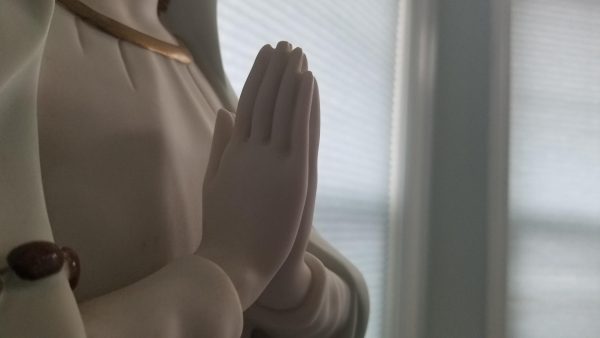Managing stress, getting help around midterms
October 6, 2019
In the fall of 2015, more than 53 percent of undergraduate students from a variety of institutions reported more than average or tremendous levels of stress, according to a study
conducted by the American College Health Association – National College Health Assessment. This number has steadily increased each year.
Pamela Farer-Singleton, the chief psychologist at University Health Services, said anxiety related to stress is not an uncommon feeling among students.
“In fact, the number one presenting problem for our students is anxiety,” Farer-Singleton said. “A lot of it is related to stress.”
Midterms are stressful because “they come up so quickly, especially when you’re still adjusting to a new schedule,” junior applied communications major Jessie Roos said.
The stressors students experience around midterms are the same all throughout the semester. It feels more intense during midterms because of the increased demands students have at this time, Farer-Singleton said.
John Schell, a senior psychologist and professor, talked about stress trends he noticed in his students around midterms.
“Even though there’s a midterm time, stress seems to ebb and flow based on students’ course loads and demands within each of the classes,” Schell said. “It’s really a matter of trying to stay ahead of that stress by using good time-management skills.”
Anticipating exams, preparing ahead of time, coming to office hours, asking questions and utilizing other academic supports are other ways of trying to stay ahead of stress, Schell said.
Stress-buffers are things that you might do to help relieve stress like having adequate physical activity, relaxation and sleep, as well as having time to do the activities you enjoy, Farer-Singleton said.
Roos said when she’s feeling personal and academic stress, she likes to journal, play on her instruments and exercise.
“When I’m feeling overwhelmed with emotions at 2 a.m., I typically try to journal,” Roos said. “However, if I don’t have to worry about waking people up, I’ll grab one of my instruments and I’ll play or try to write a song.”
Other methods of managing stress include reaching out to your professors or any faculty member, most of which have received training to help guide students to resources that help them cope with stress.
“There’s the Step Up, Speak Out campaign,” Schell said. “It’s not only a training tool to help (faculty) be able to identify students who are in need of mental health services and additional supports, but also a resource tool to help them understand what resources are available on campus and in the local community so they can direct students appropriately.”
Psychological Services, located in the DeWeese Health Center, is one of three clinics available to students on this campus. Licensed professionals are available at this location, Farer-Singleton said.
“We’re primarily focused on mental health disorders,” Farer-Singleton said about Psychological Services. “If someone came in here overwhelmed with stress, we would evaluate them and determine whether they needed individual psychotherapy. If not, we would recommend other things to help them manage their stress.”
Psychological Services provides two groups called Conquering Anxiety and The Art of Coping. These are available to students to help manage stress and build emotional resilience.
Counseling and Human Development Center in White Hall and Psychological Clinic in Kent Hall are the other clinics available on campus. The services given at these clinics are from graduate students in training as part of academic programs, Farer-Singleton said.
Coleman Professional Services and Townhall II are just two of the resources available off campus.
MORE INFO
Visit: https://www.kent.edu/psych, or call 330-672-2487
Hours: Monday-Wednesday: 9:00a.m. – 5:30p.m., Thursday: 8:30a.m. – 4:30p.m. and Friday: 9:30a.m. – 4:30p.m.
There are also many apps available on your phone that have been proven useful in helping people manage stress. Headspace, Moodpath, Calm and Stop, Breathe and Think are just a few of them, Farer-Singleton said.
“Some of them use cognitive behavioral strategies to help individuals look at the thoughts they have as it relates to their demands and stress,” Farer-Singleton said. “That helps them to have a more realistic view of what their demands might be.”
Contact Becca Sagaris at [email protected]
























